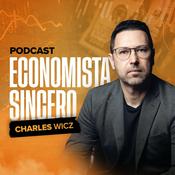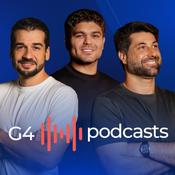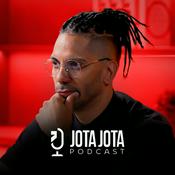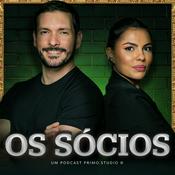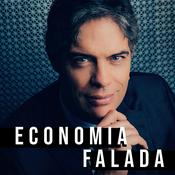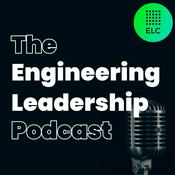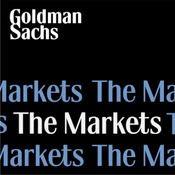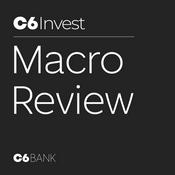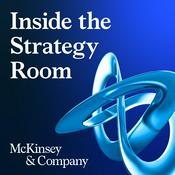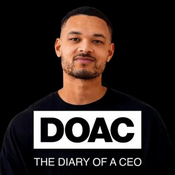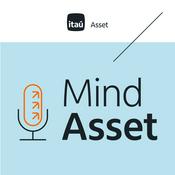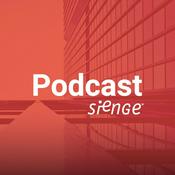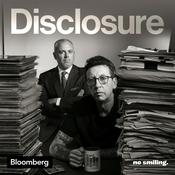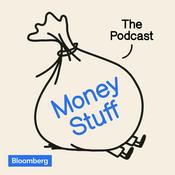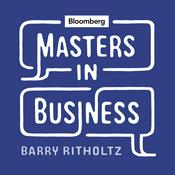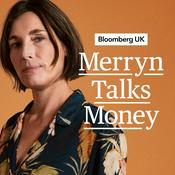1145 episódios
- The future is always tough to predict, but generally when it comes to inflation, a lot of the debate is about how long it will take the Federal Reserve to get back to its 2% target. In other words, people generally agree on the direction, but disagree on the speed. But our guest on this episode violently disagrees with the consensus direction. Peterson Institute President Adam Posen thinks inflation will be back at 4% by the end of the year. He first unveiled his thesis in a piece co-written with Lazard's Peter Orszag last month. Posen argues that the lagged effect of tariffs, immigration, further fiscal easing, and declining Fed credibility will combine to cause prices to reaccelerate. In this conversation, we speak with Posen about his thesis, and why he thinks the reports of economic softening are mistaken. We also talk about the broader geopolitical landscape and whether Europe is ready to really change its relationship with the United States.
More: A Very Non-Consensus Inflation Call
Subscribe to the Odd Lots Newsletter
Join the conversation: discord.gg/oddlots
See omnystudio.com/listener for privacy information. - We are rapidly entering a world in which there are odds on virtually everything. During the recent Super Bowl, the big prediction market platforms didn't just offer bets on the game itself, but also on more exotic facets, such as the first song that Bad Bunny would sing, even who would join Bad Bunny in the performance. And while a lot of people thinks this looks like gambling, it's actually regulated by the CFTC, an agency created in the 1970s to regulate derivatives. On this episode, we speak with new CFTC Chairman Michael Selig, who was nominated by President Trump and took his position in December. We talk to him about his philosophy, and why it is that these new bets are regulated as financial instruments, rather than gambling products. We talk about the tension that emerges when 18-year-olds can place bets on sports via prediction markets, even though in many states have laws on sports gambling, either banning it outright, or requiring participants to be at least 21. We also talk about crypto regulation, and whether perpetual futures -- which have exploded in the crypto space -- could soon be coming to traditional markets.
Read more:Jump Trading Poised to Gain Stakes in Kalshi and PolymarketGambling Stocks Sag as Prediction Markets Steal Super Bowl Bets
Only http://Bloomberg.com subscribers can get the Odd Lots newsletter in their inbox each week, plus unlimited access to the site and app. Subscribe at bloomberg.com/subscriptions/oddlots
Subscribe to the Odd Lots NewsletterJoin the conversation: discord.gg/oddlots
See omnystudio.com/listener for privacy information. - Ricardo Hausmann is a professor at the Harvard Kennedy School and the director of Harvard's Growth Lab. We've talked to him multiple times in the past about the necessary preconditions for economies to grow and thrive. But in addition to his academic work, Hausmann was previously a policymaker in Venezuela, including a stint at the country's central bank prior to the election of Hugo Chavez. In this conversation, we talk about how Venezuela went from being the largest oil exporter in the world (even larger than Saudi Arabia for a time) to becoming the ultimate economic basket case. We also talk about the huge challenge the country will face in reinvigorating its economy, and why he believes that will be impossible as long as the remnants of the Maduro government remain in charge.
Subscribe to the Odd Lots Newsletter
Join the conversation: discord.gg/oddlots
See omnystudio.com/listener for privacy information. - In less than three years, the amount of tokenized real-world assets has grown eightfold, to more than $30 billion across equities, fixed income, private assets, real estate and more. And that’s just the start of the tokenization revolution, experts predict, because of four main drivers: Increased liquidity for illiquid assets, broader investor access, operational efficiency, and global distribution and interoperability.
This episode is sponsored by Coinbase.
See omnystudio.com/listener for privacy information. - This week has been a pretty wild one in markets. Some of the most popular trades of recent years — like going long software, crypto, or gold — suddenly collapsed. Of course, there are plenty of things you can point to as the proximate cause of the selloff. AI is now an existential threat to SaaS. Bitcoin has seen some unflattering headlines. The nomination of Kevin Warsh as the next Federal Reserve chair stalled the debasement trade. But the way the market functions has also changed enormously, arguably leading to faster and more violent moves. On this episode, we catch up with Charlie McElligott, cross-asset macro strategist at Nomura, who explains just how much market mechanics have shifted, and talks about the flows and positioning he's seeing right now.
See omnystudio.com/listener for privacy information.
Mais podcasts de Negócios
Podcasts em tendência em Negócios
Sobre Odd Lots
Bloomberg's Joe Weisenthal and Tracy Alloway explore the most interesting topics in finance, markets and economics. Join the conversation every Monday and Thursday.
Site de podcastOuça Odd Lots, ECONOMISTA SINCERO e muitos outros podcasts de todo o mundo com o aplicativo o radio.net

Obtenha o aplicativo gratuito radio.net
- Guardar rádios e podcasts favoritos
- Transmissão via Wi-Fi ou Bluetooth
- Carplay & Android Audo compatìvel
- E ainda mais funções
Obtenha o aplicativo gratuito radio.net
- Guardar rádios e podcasts favoritos
- Transmissão via Wi-Fi ou Bluetooth
- Carplay & Android Audo compatìvel
- E ainda mais funções


Odd Lots
Leia o código,
baixe o aplicativo,
ouça.
baixe o aplicativo,
ouça.

